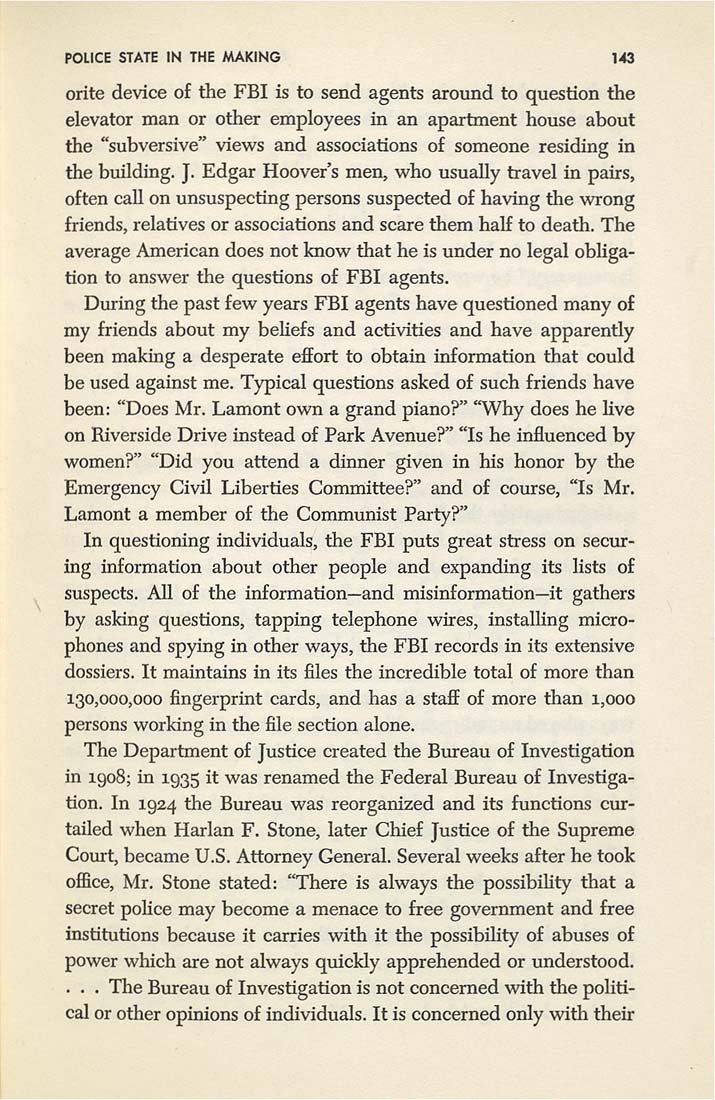POLICE STATE IN THE MAKING 143
orite device of the FBI is to send agents around to question the
elevator man or other employees in an apartment house about
the "subversive" views and associations of someone residing in
the building. J. Edgar Hoover's men, who usually tiavel in pairs,
often caU on unsuspecting persons suspected of having the wrong
friends, relatives or associations and scare them half to death. The
average American does not know that he is under no legal obliga¬
tion to answer the questions of FBI agents.
During the past few years FBI agents have questioned many of
my friends about my behefs and activities and have apparently
been making a desperate effort to obtain information that could
be used against me. Typical questions asked of such friends have
been: "Does Mr. Lamont own a grand piano?" "Why does he Hve
on Riverside Drive instead of Park Avenue?" "Is he influenced by
women?" "Did you attend a dinner given in his honor by the
Emergency Civil Liberties Committee?" and of course, "Is Mr.
Lamont a member of the Communist Party?"
In questioning individuals, the FBI puts great stiess on secur¬
ing information about other people and expanding its hsts of
suspects. All of the information—and misinformation—it gathers
by asking questions, tapping telephone wires, installing micro¬
phones and spying in other ways, the FBI records in its extensive
dossiers. It maintains in its files the incredible total of more than
130,000,000 fingerprint cards, and has a staff of more than 1,000
persons working in the file section alone.
The Department of Justice created the Bureau of Investigation
in 1908; in 1935 it was renamed the Federal Bureau of Investiga¬
tion. In 1924 the Bureau was reorganized and its functions cur¬
tailed when Harlan F. Stone, later Chief Justice of the Supreme
Court, became U.S. Attorney General. Several weeks after he took
office, Mr. Stone stated: "There is always the possibility that a
secret poHce may become a menace to free government and free
institutions because it carries with it the possibility of abuses of
power which are not always quickly apprehended or understood.
. . . The Bureau of Investigation is not concerned with the politi¬
cal or other opinions of individuals. It is concerned only with their
|








